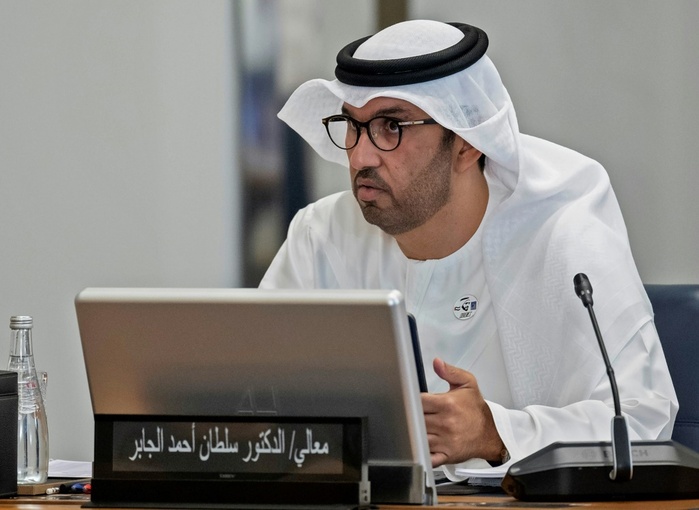The head of the United Arab Emirates' national oil company was named Thursday as president of this year's COP28 climate talks, prompting fierce criticism from environmental activists.
Sultan Ahmed al-Jaber, who heads up the UAE's Abu Dhabi National Oil Company (ADNOC), will be the first CEO to take the role at the UN summit, said a statement carried by the official WAM news agency.
"We will bring a pragmatic, realistic and solutions-oriented approach that delivers transformative progress for climate and for low carbon economic growth," Jaber said in the statement.
"I sincerely believe that climate action today is an immense economic opportunity for investment in sustainable growth," he added.
Environmental activists were quick to react, warning that the involvement of a major figure from the oil industry could slow progress in the fight against global warming.
Jaber's appointment "poses an outrageous conflict of interest", said Harjeet Singh, head of global political strategy at Climate Action Network International.
"The ongoing menace of fossil fuel lobbyists at the UN climate talks has consistently weakened outcomes of the climate conference but this takes it to another dangerous and unprecedented level."
COP27, held in Egypt in November, concluded with the adoption of a hotly contested text on aid to poor countries affected by climate change, but failed to set new ambitions for lowering greenhouse gas emissions.
The UAE's hosting of this year's edition, in Dubai in November and December, has provoked concern from activists urging a shift away from oil, which produces greenhouse gases.
- Too hot for humans -
The UAE, one of the world's biggest crude producers, argues that oil remains indispensable to the global economy and is pushing the merits of carbon capture -- removing carbon dioxide, the main greenhouse gas, as fuel is burned or from the air.

"The UAE is committed to multilateral cooperation and an inclusive process that brings together emerging economies with developed nations, civil society, and business to achieve the solutions and the pace of change required."
The UAE is one of the countries at the sharp end of climate change as it lies in one of the world's hottest regions, with summer temperatures nudging 50 degrees Celsius (122 degrees Fahrenheit).
According to a study published in 2021, parts of the Gulf could become too hot for human habitation by the end of this century.
Having diversified its economy over the decades, the UAE relies less and less on oil, whose revenues now make up 30 percent of GDP.
But the Gulf state forecasts that the oil and gas industry would need to invest more than $600 billion every year until 2030 just to keep up with expected demand.
At the same time, the UAE is spending billions to develop enough renewable energy to cover half of its needs by 2050, when it is targeting domestic carbon neutrality -- which excludes emissions from its exported oil.
th/dv
© Agence France-Presse
Your content is great. However, if any of the content contained herein violates any rights of yours, including those of copyright, please contact us immediately by e-mail at media[@]kissrpr.com.
Source: Story.KISSPR.com

